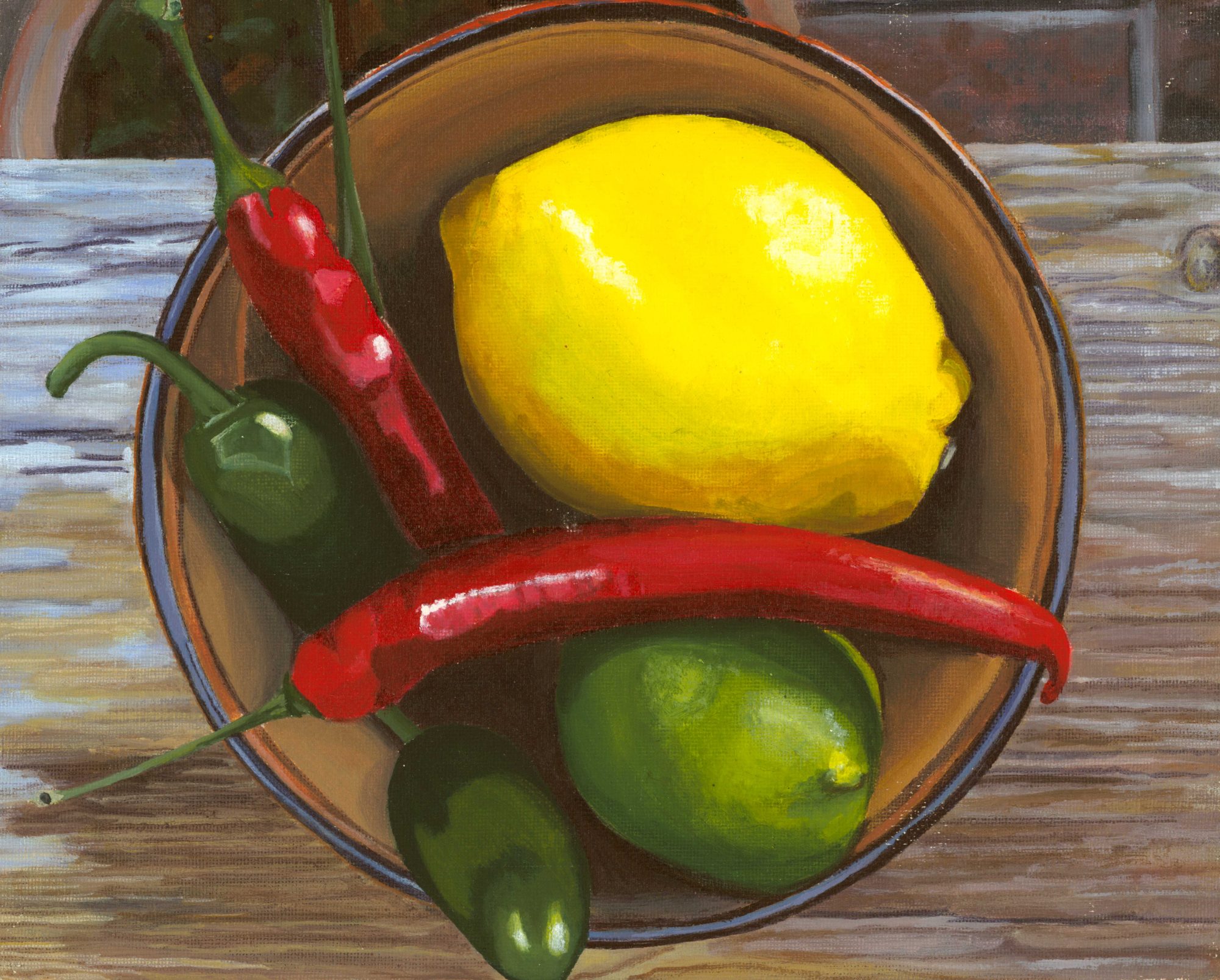An old friend asks if her daughter can come over to do some painting. Her Art GCSE is looming and she wants some practice.
Of course she’s welcome, although I hope she’s not looking for actual instruction. ‘Fiddle about with it until you like it’ is the closest I get to a working method.
When she arrives, it’s watercolour she wants to work with. I yelp inwardly, because I haven’t used them much for years, but manage to rummage out some paper and brushes.
She hasn’t got a drawing or photograph to work with so we go with the standby – paint some fruit. Sketching a rough outline causes her no problems, but when she starts to paint she seems hesitant, unsure: asking often ‘Is this right?’ ‘What comes next?’
We talk about the impending exam. Ten hours over two days, working to a vague theme, some prep work allowed. Ten hours seems like a huge stretch of time but I can spend months on a picture, so I tell her to plan ahead as much as she can, it always takes longer than you expect.
Her mum tells me later that one of her teachers told her, out of the blue and two weeks before the exam, that she wasn’t competent in the skills she needed to pass the exam. Having never said so in the previous two years of teaching. Why would anyone do that? If this is how formal art education works, I’m glad I didn’t have one.

Mostly painting